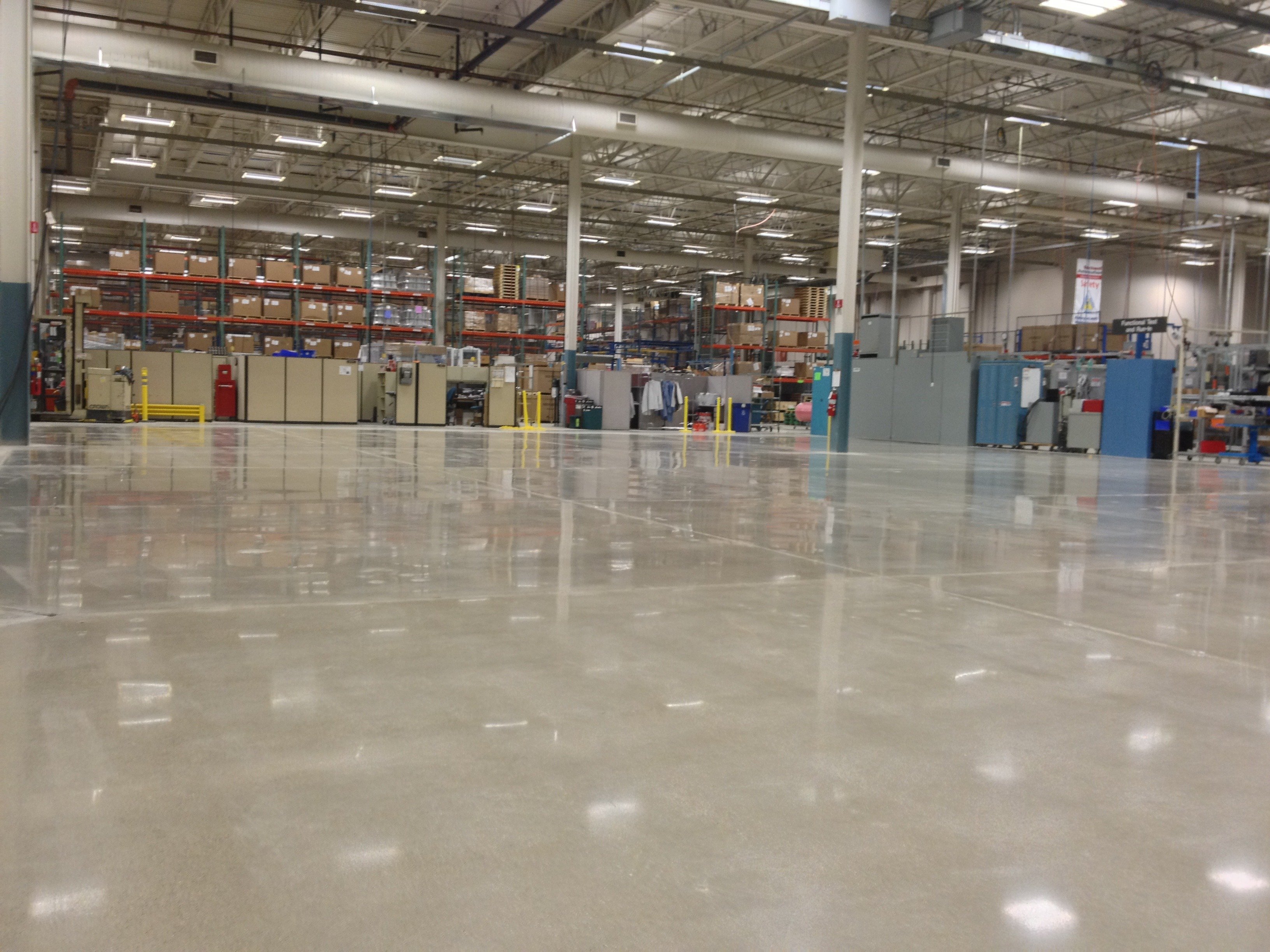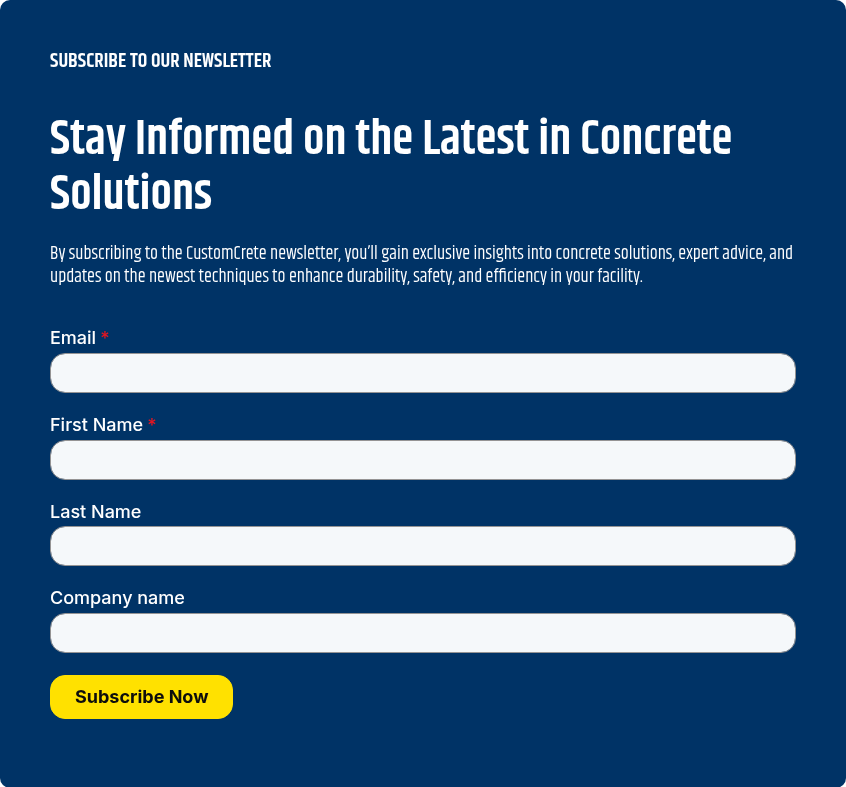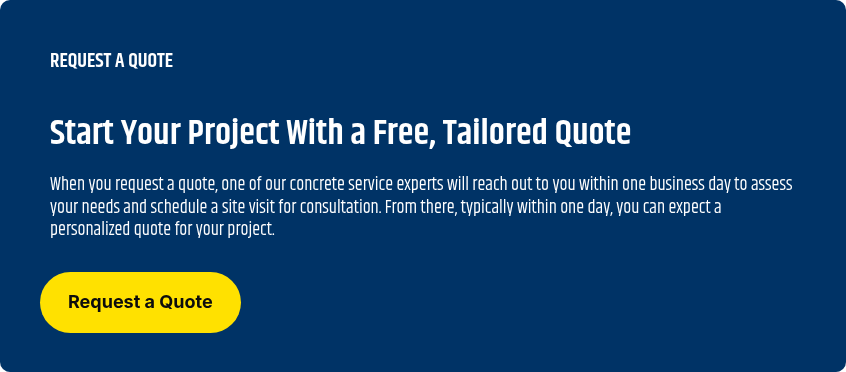
Polished concrete is a sleek, durable, and low-maintenance flooring option that has become a go-to solution for businesses across a range of industries. Still, many business owners find themselves asking: “Will polished concrete actually work for my business?”
The short answer is—probably, but it depends on your specific space, operations, and expectations.
CustomCrete has guided countless Chicago-area businesses through this decision, helping them assess performance needs and aesthetics to determine the best flooring fit for their environment. This guide will help you assess whether polished concrete is a practical and aesthetic match for your business needs.

What Is Polished Concrete?
Polished concrete is created by grinding down the surface of a concrete slab with progressively finer abrasives, followed by chemical hardening and polishing to achieve a smooth, often glossy finish. The result is a dense, reflective surface that’s both attractive and long-lasting. The finish can be customized with varying levels of sheen or color stains, allowing it to adapt to different design goals.
Because the process uses the existing concrete slab, it eliminates the need for additional flooring materials—making it both cost-effective and environmentally friendly.
Functional Benefits for Businesses
One of the biggest draws of polished concrete is its functionality. Here’s why many commercial and industrial environments choose it:
- Durability: Polished concrete stands up to heavy machinery, high foot traffic, and abrasion. It doesn’t peel, chip, or flake like other coatings.
- Low Maintenance: Once installed, it requires only basic cleaning—no waxing, stripping, or frequent refinishing.
- Dust Control: Densified concrete reduces dusting caused by breakdown of the slab surface.
- Improved Lighting: Its reflective surface can help reduce lighting needs and improve visibility.
- Slip Resistance: When treated correctly, it provides solid traction while maintaining its sleek appearance.
Aesthetic Flexibility
Beyond functionality, polished concrete delivers a clean, modern look that can elevate the visual appeal of your business. It can be customized in terms of finish level (matte, satin, or high gloss), stained for color, or enhanced with decorative scoring and saw cuts.
This makes it a popular choice for:
- Offices and open-concept workspaces
- Retail environments aiming for an upscale vibe
- Restaurants and cafés that want a blend of style and practicality
Industries Where Polished Concrete Performs Well
If you’re wondering whether polished concrete is a good fit, consider your industry and daily operations. Here are examples of where it thrives:
- Warehouses & Manufacturing Facilities: Handles forklifts, heavy loads, and foot traffic with minimal wear.
- Retail Stores: Offers a durable and attractive surface that enhances product presentation.
- Offices: Provides a clean, professional look and can reduce maintenance costs over carpet or tile.
- Educational Institutions: Ideal for hallways, cafeterias, and classrooms thanks to its longevity and low maintenance.
- Healthcare & Pharmaceutical: Easy to clean and sanitize, meeting hygiene standards.
- Food & Beverage: Stain-resistant options work well in restaurant dining areas or.
When Polished Concrete Might Not Be the Best Fit
While polished concrete offers many benefits, it’s not right for every business. You might want to consider alternatives if:
- You Need High Chemical Resistance: In areas exposed to harsh acids or solvents, specialized coatings like epoxy or urethane cement may be more appropriate.
- You Require a Softer Surface: In environments where employees stand for long hours—like commercial kitchens or packaging lines—a softer floor with ergonomic mats may be better.
Cost and Longevity
Polished concrete typically costs between $3 and $6 per square foot in the Chicago area. Staining can add another $1–$3 per square foot, and polish overlay systems can range from $12–$20 per square foot. While this may seem like a significant investment, polished concrete typically lasts 10 years or more with minimal maintenance—making it a cost-effective solution in the long run.
What to Expect from the Installation Process
Installation timelines vary depending on square footage and the condition of your existing concrete. Most projects include:
- Inspection and Surface Evaluation
- Grinding and Densifying
- Polishing to Desired Gloss Level
- Optional Coloring or Sealing
Polishing usually takes a few days to complete, and most businesses can resume operations shortly after curing.
CustomCrete’s Experience with Polished Concrete
CustomCrete has worked with a wide range of Chicago-area businesses to design and install polished concrete floors tailored to their operations. From retail stores and offices to manufacturing plants and distribution centers, our team ensures the surface is properly prepared, polished, and protected for long-term performance.
We help our clients weigh the pros and cons and determine whether polished concrete aligns with their needs and goals—ensuring they make the right investment for their space.
Final Thoughts
Polished concrete can work for many types of businesses, but the decision should come down to your industry, how the space is used, and what level of performance and aesthetics you require. For businesses seeking a modern, low-maintenance, and durable flooring solution, it’s often an excellent choice.
Want to dive deeper into the options? Visit our blog page on When to Pay for Concrete Polishing in Your Business to learn more about polished concrete.
